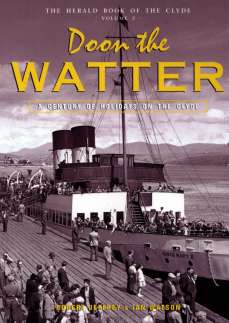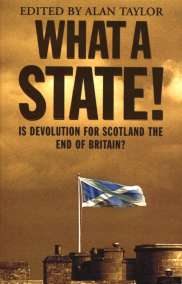|
||
 |
DOON THE WATTER At the turn of the century Glasgow was known as the second city of the British Empire. As the city and its industries flourished, its hard-working citizens began to seek out new ways to escape the grime and noise of the shipyards and factories. During the annual Fair Fortnight holidays, long before the Spanish Costas became affordable, thousands would flock 'doon the watter' to sample the delights of the seaside resorts of the Clyde coast. They travelled by paddle steamers like the Waverley and Jeanie Deans, the Lucy Ashton and the Duchess of Montrose, by steam train, by bus and by car, to stroll along the sands and dip their toes in the icy waters of the Clyde. Towns like Largs, Rothesay, Millport, Dunoon, Campbeltown and Helensburgh thrived as a result, and Glaswegians loved them. These were simpler times, when a bucket and spade, a ninety-nine, a deck chair in a stiff breeze, the local putting green, or a shilling trip round the bay were all the entertainment anyone needed. Robert Jeffrey and Ian Watson, authors of The Herald Book of the Clyde, have compiled this new collection of photographs depicting life 'doon the watter' from the archives of The Herald in Glasgow. A nostalgic look at the way we used to live, Doon the Watter is also a fascinating glimpse of times past in and around the seaside towns of the Clyde. |
|
 |
WHAT A STATE Whatever your view, devolution has changed the nature of Britain's constitutional settlement more fundamentally than any other reform since the introduction of universal suffrage. Its implications - politically and culturally - are enormous. In What a State! Alan Taylor of The Scotsman gathers together the opinions of some of Scotland's most acclaimed and forthright writers. Views often clash in debates which cover questions of identity. the survival of Britain, the Scottish intellectual renaissance, the new breed of Scottish leader. The book spans the entire political and cultural spectrum. With essays, sketches, commentary and analysis by Gavin Esler, Alasdair Gray, Angus Calder, Gillian Glover, Allan Massie, Andrew Neil, Sir Malcolm Rifkind, Iain MacWhirter and Ian Bell, it is essential reading for anyone who wishes to understand the future facing us all. |
|
|
|